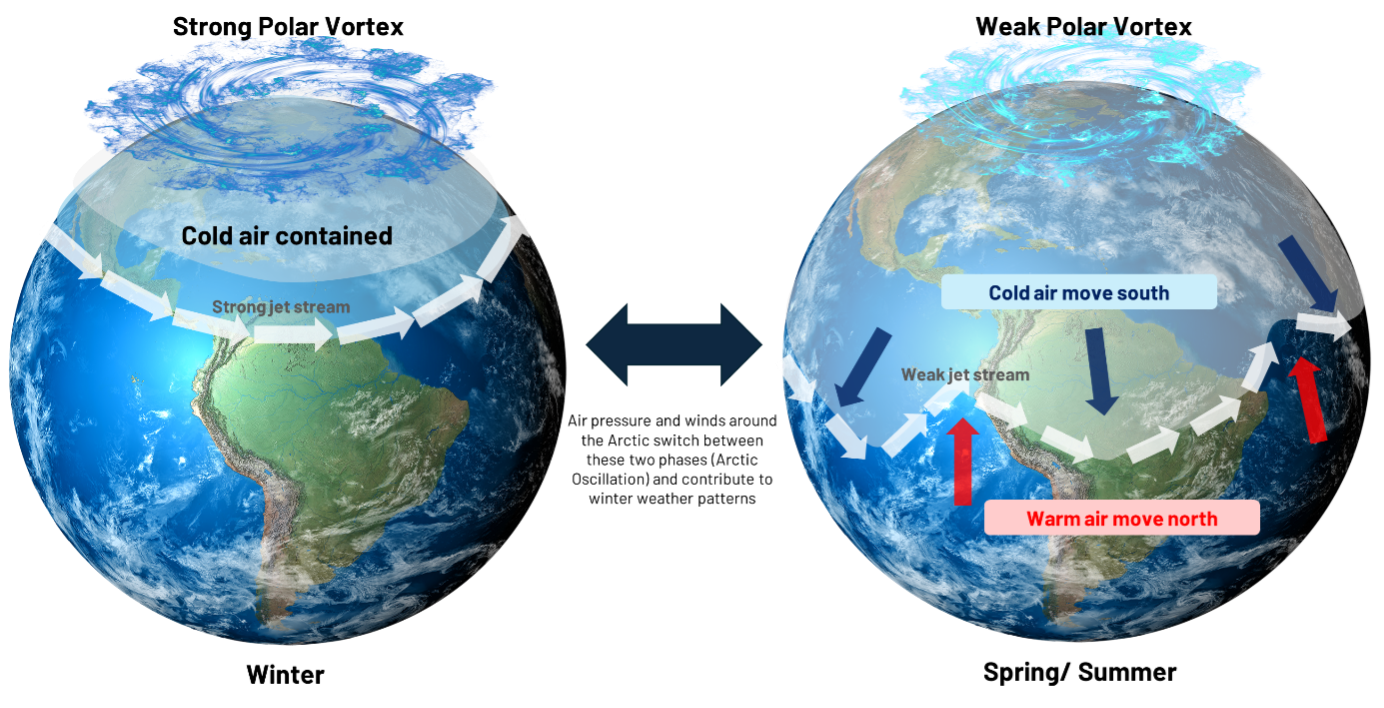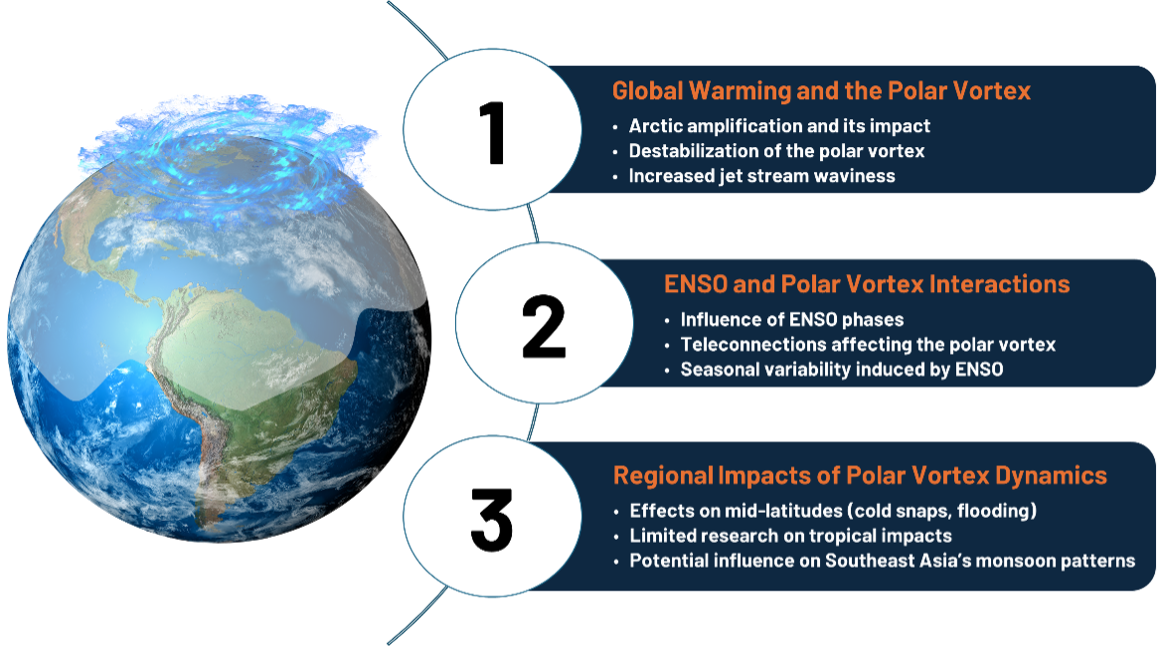UMS Secures YPASM Research Grant for Polar Vortex and Tropical Climate Research

Published: 3 September 2025
The Yayasan Penyelidikan Antartika Sultan Mizan (YPASM) has awarded funding to Dr. Eugene Soo Zhen Xiang from the Faculty of Engineering, Universiti Malaysia Sabah (UMS), through the YPASM Research Grant amounting to RM123,400, to lead the project “Investigating Polar Vortex Dynamics and Their Impacts on the Asian Monsoon Cycle and Tropical Climate Systems.” This award reflects YPASM’s commitment to advancing research that bridges polar discoveries with tropical applications, in line with the 2025 theme: “Polar Discoveries, Tropical Applications – Shaping Malaysia’s Sustainable Future Through Polar Research.”

Dr. Eugene Soo Zhen Xiang
Project Background
The polar vortex is a crucial component of Earth's atmospheric circulation, comprising a large, persistent area of low-pressure air swirling around the poles. During winter, it intensifies and becomes colder, while in spring or summer, it weakens. The polar vortex's dynamics are intricately linked to the jet stream, a high-altitude ribbon of fast-moving air that drives weather patterns across the globe. The interaction between these systems influences the distribution of cold air, particularly when the polar vortex weakens and allows frigid air masses to spill into lower latitudes. This interaction has triggered extreme weather events, such as the deep freeze that affected North America in 2019 and the prolonged flooding in the United Kingdom during 2013–14.
Global warming has introduced unprecedented variability into the polar vortex's behavior. Arctic amplification—where Arctic temperatures rise faster than global averages—disrupts the temperature gradient between the poles and equator. This weakens the polar vortex, increasing its waviness and enabling a southward migration of cold air masses. Consequently, such disruptions result in extreme cold weather events at mid-latitudes while paradoxically exposing the Arctic to unseasonably warm conditions.
While substantial progress has been made in understanding mid-latitude impacts, the polar vortex’s influence on the tropics remains less studied. For Malaysia and the wider Southeast Asian region, this represents a critical knowledge gap. The Asian monsoon, which governs rainfall, agriculture, and water resources, is highly sensitive to external atmospheric disturbances. Interactions between polar vortex anomalies and other drivers, such as the El Niño–Southern Oscillation (ENSO), add complexity and uncertainty to regional climate projections.
Climate and Societal Relevance

Key literature themes: global warming, ENSO interactions, regional impacts, and knowledge gaps.
Climate Resilience
Environmental Sustainability
• SDG 2 – Zero Hunger: Protecting food security against climate variability.
• SDG 6 – Clean Water & Sanitation: Safeguarding freshwater availability.
• SDG 11 – Sustainable Cities & Communities: Supporting disaster preparedness and resilient urban planning.
• SDG 13 – Climate Action: Advancing mitigation and adaptation measures.
Project Framework
The analysis is organized into three main stages:
1. Global Climate Linkages – Examining how global warming and the El Niño–Southern Oscillation (ENSO) affect the structure of the polar vortex and its interaction with the jet stream.
2. Regional Impacts – Assessing how shifts in the polar vortex influence atmospheric circulation in Southeast Asia and the timing and variability of monsoon systems.
3. Local Climate Effects – Investigating the consequences for Malaysia’s rainfall distribution, water resources, and extreme weather events such as floods and droughts.
By combining global data with national climate records, the project builds a comprehensive picture of how large-scale atmospheric processes cascade into local impacts. This approach provides evidence-based insights that can inform climate adaptation strategies, disaster preparedness, and sustainable water management in Malaysia.
Conclusion
The outcomes strengthen Malaysia’s position at the intersection of polar science and tropical application, offering evidence-based pathways for climate resilience, water security, and sustainable socio-economic development in an era of accelerating climate change.
Formation of Polar Vortex
- Dr. Eugene Soo Zhen Xiang
- Ir. Dr. Janice Lynn Ayog
- GS. Dr. Kamilia Binti Sharir



